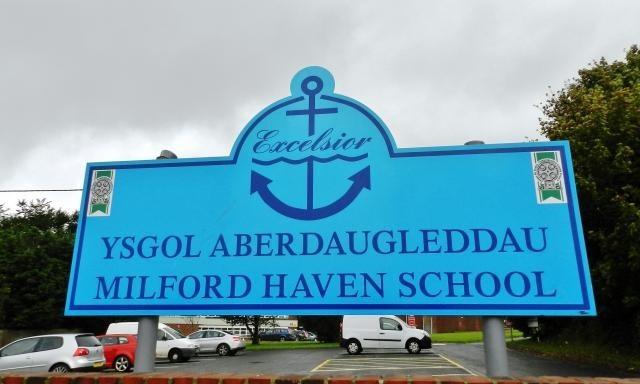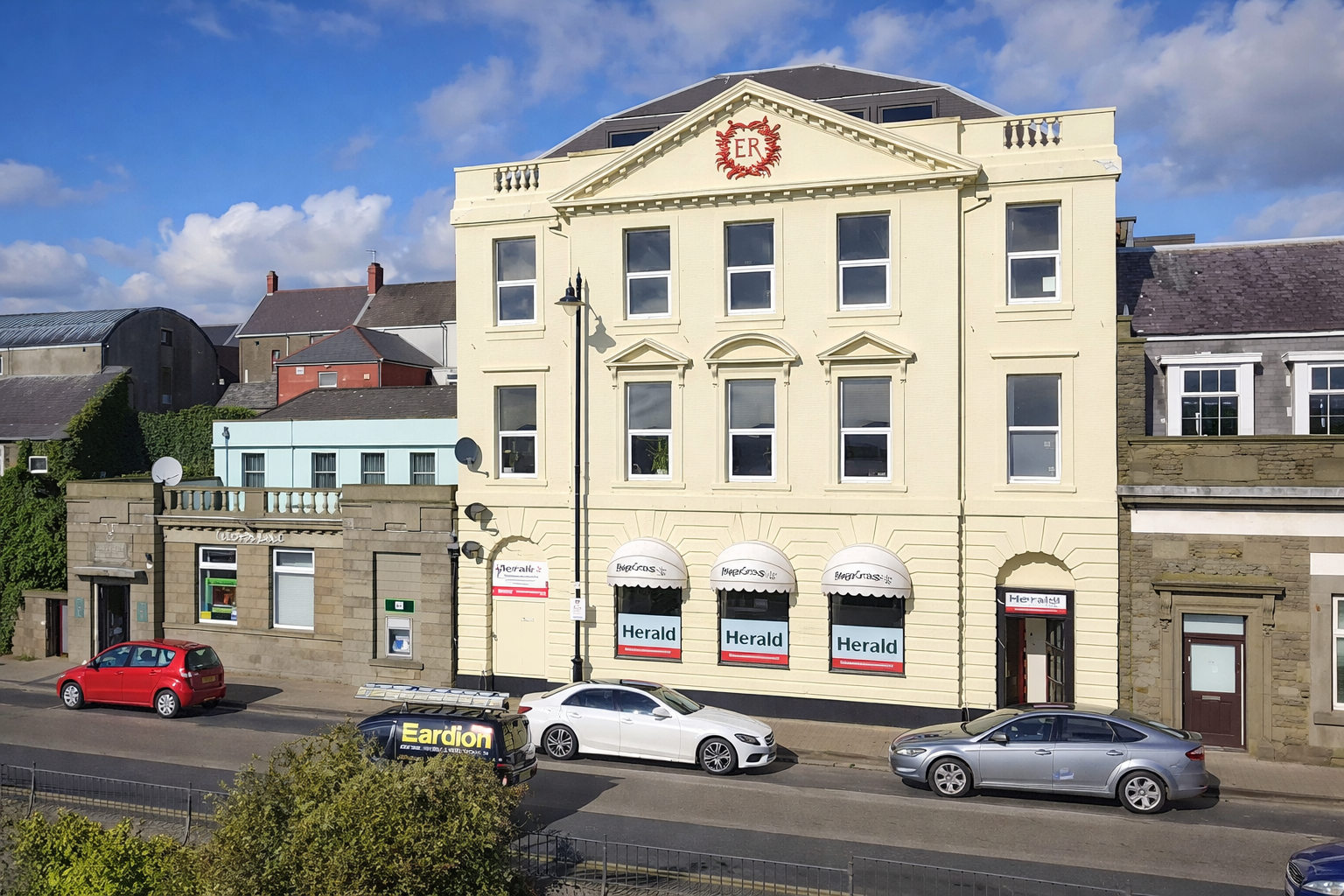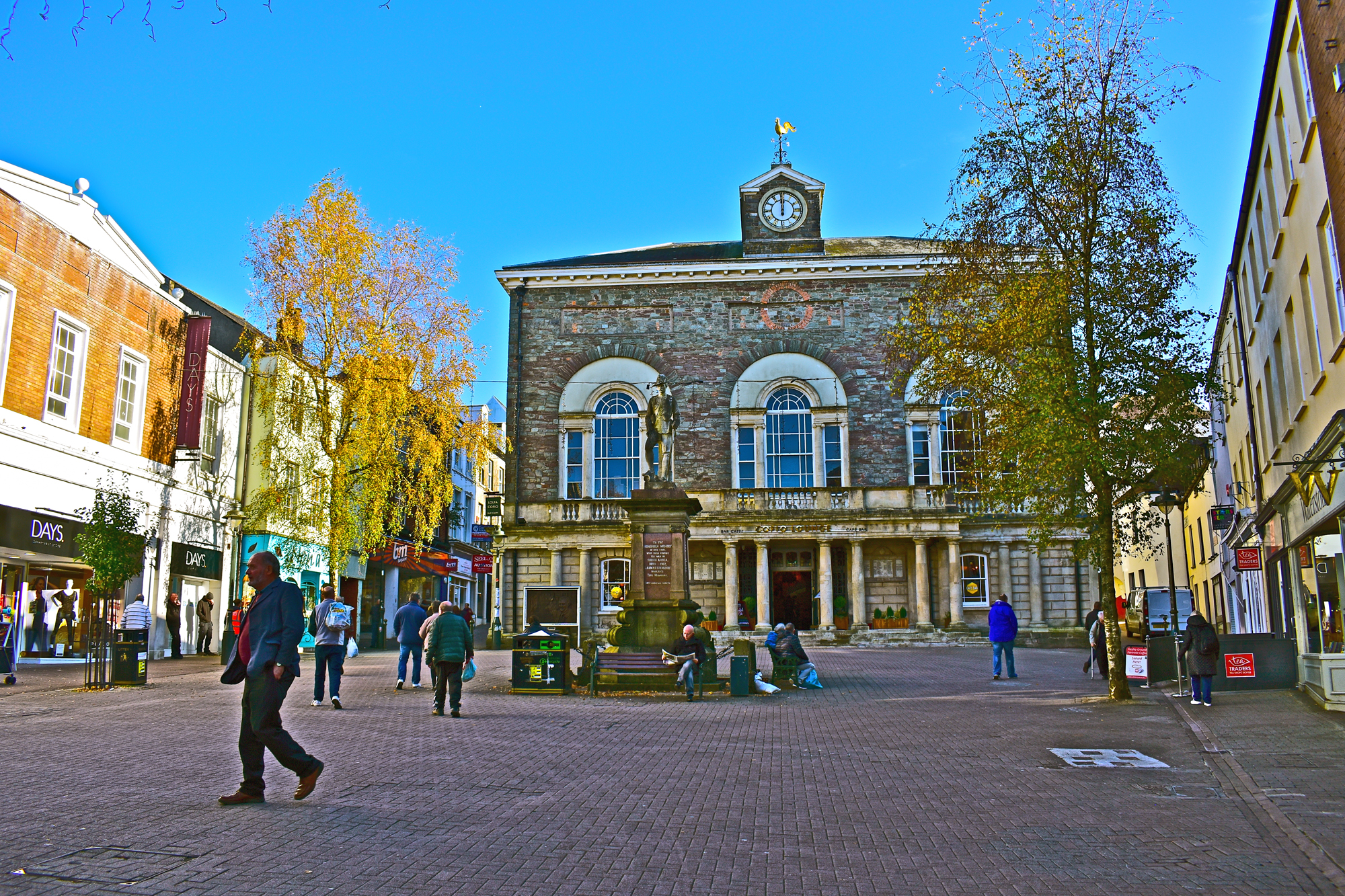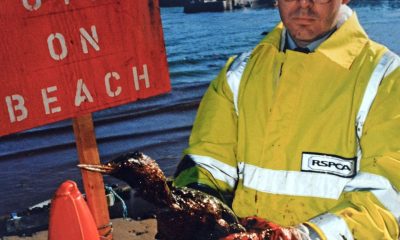News
‘We are called to be peace-makers’, says Archbishop

 WAR may sometimes be necessary but it is a sign of human failure, the Archbishop of Wales said at a candlelit vigil service to commemorate the outbreak of the First World War.
WAR may sometimes be necessary but it is a sign of human failure, the Archbishop of Wales said at a candlelit vigil service to commemorate the outbreak of the First World War.
Dr Barry Morgan told the congregation at Llandaff Cathedral that we were called to be peace-makers and no conflict could be a good act.
The Archbishop was speaking at a commemorative service held jointly by the Welsh Government and Cardiff Council in the presence of the Duke and Duchess of Gloucester. He said the service was about remembering sacrifice, not celebrating victory, and he urged people to strive for peace in their own relationships, the nation and the world.
Dr Morgan said, “War may sometimes be necessary but the Christian Church has never claimed that war and violence are good acts. To be involved in war is always to lapse from the God-given ideal of peace and reconciliation.
“If there is no other way except through war to establish justice, then it may be the right or necessary thing to do, as the lesser of two evils but such a choice necessarily involves one in sin. It is never a good act. It is only by a convoluted and tortuous process of reasoning that I can ever claim to be demonstrating God’s love towards my unjust neighbour by taking a gun and shooting him.
“That is why this service has a penitential section where we acknowledge our failures and shortcomings before God, since involvement in any war, for whatever reason, is a sign of human failure and in any conflict there can be no completely innocent party, even though one side may be more guilty than the other.”
While giving thanks for those who sacrificed their lives standing against oppression and injustice, we need to resolve to ensure war doesn’t happen again, the Archbishop said.
“Wars do not solve the deepest problems of human life. Not even the First World War resolved the issues that led to it for some of these conflicts still smoulder on in the Balkans and elsewhere. At best, they give us breathing spaces in which to build and work for a world in which war will seem an obscene irrelevance. That is why abstaining from conflict is never enough because more is needed. We are called to be peacemakers, for as Jesus said “peacemakers shall be called the sons and daughters of God.”
He added, “Our prayer tonight then might be that conscious of our past, and all that it entailed, we seek to live compassionately and caringly for the whole of humanity by striving for the things that make for peace in our own relationships, our own nation and indeed our world.”
During the service, a message of peace was read by two members of Urdd Gobaith Cymru’s Youth Forum. Wreaths were laid by the Duke of Goucester, the First Minister of Wales, the Lord Mayor of Cardiff and Wyn Calvin, a president of the Cardiff Central branch of the Royal British Legion. Saleem Kidwai, secretary general of the Muslim Council of Wales, laid an olive branch on behalf of the Interfaith Council for Wales.
At the end of the service, lights in the Cathedral were dimmed and a candle was lit by the Revd Albrecht Kostlin-Buurma of the German Lutheran Churches and people kept a period of silence.
Following a blessing by the Archbishop, the Last Post was sounded and the Cathedral bells tolled to mark the centenary of the outbreak of war.
Sermon – Commemoration of
World War I
 “The trouble with services about the two World Wars” wrote one veteran of World War II recently, “is that the ceremonies have been hijacked by politicians, the Royal Family, and the church – and they are not about any of them”.
“The trouble with services about the two World Wars” wrote one veteran of World War II recently, “is that the ceremonies have been hijacked by politicians, the Royal Family, and the church – and they are not about any of them”.
Well, that seems to exclude a fair number of us here tonight but without becoming too defensive, what precisely are we doing when we hold a service such as this?
Well, it is certainly not about giving significance to any of the categories just mentioned nor is it about glorifying war. As the Lambeth Conference of 1930 said “War as a method of settling international disputes, is incompatible with the teaching and example of Jesus”.
War may sometimes be necessary but the Christian Church has never claimed that war and violence are good acts. To be involved in war is always to lapse from the God-given ideal of peace and reconciliation. And it is interesting that people who have served in our armed forces usually both refuse to talk about the horrors of war and regard it as the option of a last resort.
If there is no other way except through war to establish justice, then it may be the right or necessary thing to do, as the lesser of two evils but such a choice necessarily involves one in sin. It is never a good act. It is only by a convoluted and tortuous process of reasoning that I can ever claim to be demonstrating God’s love towards my unjust neighbour by taking a gun and shooting him.
That is why this service has a penitential section where we acknowledge our failures and shortcomings before God (just look at the last hymn we have sung), since involvement in any war, for whatever reason, is a sign of human failure and in any conflict there can be no completely innocent party, even though one side may be more guilty than the other.
Memorials of the fallen in the First World War indicate the way in which our predecessors made sense of it all. They saw the deaths of those who fought as a laying down of lives for the sake of others, as the First Minister points out in his foreword to this service. Human sacrifice, not triumphalism about being victorious is the note they struck. The Annual Service of Remembrance is held at a cenotaph not an Arc de Triomphe.
That way of seeing things, helps people deal with the pain of loss. Death seen as sacrifice has remained the language through which those whose loved ones in today’s conflicts also find solace. And so we give thanks for men and women who gave up their lives to safeguard values such as justice, freedom and liberty and for men and women from every race and nation who have stood against oppression and injustice.
But, alongside penitence, there is repentance. The word “repentance” means to have a change of heart. It involves a resolve to ensure that such a thing never happens again. Japan is an example of this. Since the last war, as if to make amends for its atrocities, Japan has become one of the most peace loving of all nations. It has committed itself to peace and non-military economic growth.
Wars however do not solve the deepest problems of human life. Not even the First World War resolved the issues that led to it for some of these conflicts still smoulder on in the Balkans and elsewhere. At best, they give us breathing spaces in which to build and work for a world in which war will seem an obscene irrelevance. That is why abstaining from conflict is never enough because more is needed. We are called to be peacemakers, for as Jesus said “peacemakers shall be called the sons and daughters of God”.
R. H. Tawney was a major figure in the development of British political thought, a Christian socialist who had also fought in World War One and found himself alone in No Man’s Land for nearly two days, after being wounded by the fragments of a shell.
He wrote “why is it that marshalled against an enemy, is given to a nation a common outlook, a spiritual unity, a power of co-operation and a comradeship in service which eludes it in peace time. How can people lay down their life for one another in war but not in peace?”
The idea of a fellowship limited to the business of killing and absent from the business of living haunted him.
“Why are we”, says Tawney “so willing to pay for our armed services but reluctant to pay for social, educational and health services? Wasted lives in war ought to lead to a prevention of wasted lives in peace”.
Our hope is that by reflecting on all these things in an act of worship, God may be able to work on us and change us for the better. As one theologian puts it “We come into the presence of God with our human emotions, with pride and courage and grief at loss and waste. As we pour out our prayer, our mourning, our pride, our shame, our convictions, God is able to work upon us. He is able to deepen and enlarge our compassion and to purify our thanksgiving. People who come mourning their own losses, then find not just consolation but a spirit which enlarges their own compassion for others”.
Our prayer tonight then might be that conscious of our past, and all that it entailed, we seek to live compassionately and caringly for the whole of humanity by striving for the things that make for peace in our own relationships, our own nation and indeed our world.
Education
Leadership questions raised after Milford Haven school stabbing

Headteacher absent as council confirms support plan and oversight visits
CONCERNS have been raised about leadership and staffing at Milford Haven Comprehensive School following last week’s alleged stabbing of a teacher on site.
The Herald has been contacted by a member of teaching staff who described the school as “rudderless” in the days after the incident and questioned whether enough senior management support was in place.
The teacher, who asked not to be named, said staff morale had been affected and claimed there had been little direct communication from the headteacher, who has been absent due to injury.
They said: “We teachers are all saying the same thing. The school feels rudderless. This is a time when a leader needs to step up and let us know they’re still in charge and concerned.”
Concerns were also raised about administrative capacity, with the business manager role reportedly unfilled.
A spokesperson for Pembrokeshire County Council confirmed the current arrangements.
The council said headteacher Ms C. A. Morris remains in post but is currently absent, with deputy headteacher Mr Daryl John deputising.
It added that the business manager position is a matter for the school.
Additional support has been put in place for staff and pupils, including the Education Psychology team on site, access to counselling services and an increased presence from the School Police Liaison Officer throughout the week.
The authority also said the Director of Education is in daily contact with the deputy head.
In terms of oversight, the council confirmed Steven Richards-Downes, Director of Education, has visited the school 35 times and met staff on two occasions. Cllr Guy Woodham, Cabinet Member for Education and Welsh Language, has made eight visits since taking up the role in May 2019.
Last week’s incident saw a 15-year-old male charged grievous bodily harm with intent and possession of a bladed article.
At an initial hearing it was explained that the teacher, who was named as Vicky Williams, has since been discharged from hospital.
The prosecution explained to the court that the boy attacked Williams with a kitchen knife.
The case has been sent to Swansea Crown Court.
Community
Facebook ‘news’ site targeting Herald editor collapses after community backlash

Page disappears hours after offensive post sparks outrage across Pembrokeshire
A FACEBOOK page that presented itself as a local news outlet but repeatedly targeted The Pembrokeshire Herald and its editor has disappeared following a wave of public criticism from residents and charity workers.

The page, operating most recently under the name Clear Line News, published a lengthy post on Sunday (Feb 9) describing Pembrokeshire in highly offensive terms and mocking community groups, volunteers and local reporting.
Within hours, the post triggered widespread condemnation online.
By the end of the day, users reported the page had changed its name to “The Devil’s Feed” before becoming unavailable altogether.
Criticism arose after Marty Jones, PR manager for Sandy Bear Children’s Bereavement Charity, shared a screenshot of the post on his personal Facebook page and questioned its tone.
Dozens of residents replied, describing the language as “vile”, “nasty” and “beyond comprehension”.
Several said they had been blocked by the page after challenging it.
Others expressed particular anger at comments they said were directed towards a bereaved mother connected to a local fundraiser.
One commenter wrote: “How they can speak to a bereaved mother that way is beyond my comprehension.”
Name change and closure
As criticism mounted, users reported the page had been renamed before disappearing completely.
By Monday morning, it could no longer be accessed.
Earlier identity
The page’s history has also drawn scrutiny.
Before operating as Clear Line News, the account previously used the name “Dyfed-Powys Neighbourhood Watch”, presenting itself in a way that some residents believed suggested an official or community safety organisation.

A company using a similar name — GWARCHOD Y GYMDOGAETH DYFED-POWYS NEIGHBOURHOOD WATCH LIMITED — was incorporated on Nov 4, 2024, according to Companies House records.
The filing listed the director as Ajay Owen, recorded as “Lord Ajay Owen”, with a correspondence address in Llanfyrnach.
The company’s stated activities included public relations, communications and public order and safety functions.
Companies House records show the company was dissolved on Feb 18, 2025.
During the period when the page appeared to carry Neighbourhood Watch-style branding, it accumulated more than 1,000 followers, including engagement from public bodies such as Mid and West Wales Fire and Rescue Service.
After several rebrands, the page later emerged as Clear Line News in late 2025, adopting the look of a local news site.
Much of its content, however, focused on opinion pieces and attacks on local institutions and individuals.
Distancing statement
Following Sunday’s controversy, Mr Owen posted a statement saying he previously owned the page but no longer controlled it and had requested its removal.
Shortly afterwards, the account disappeared.
He told The Herald in December that he had sold the page for £10 within days of relaunching it under the new name. The purported new owner could not be contacted and no independent details confirming the transfer were provided.
Community response
While Pembrokeshire residents accept robust debate and scrutiny, many said they rejected what they saw as inflammatory or abusive social media content masquerading as journalism.
One resident wrote: “We should be grateful for where we live and try to make it better, not tear it down.”
Whether the page returns under another name remains unclear.
For now, it appears a site that set out to criticise the community ended up undone by that same community’s response.
Community
Nacro grant boosts neurodiverse support in Carmarthen

A £1,000 grant from Nacro is set to strengthen grassroots support for neurodivergent children, young people and adults across Carmarthenshire.
CANDO (Carmarthen Aberystwyth Neurodiverse Outreach Group) has secured the funding through the Connecting Carmarthenshire Preventative Service, enabling the volunteer-led organisation to expand its practical, person-centred work with local families.
Operating under the message “We see your future whatever the past”, CANDO supports people who often struggle to access the right help, feel heard, or find stability in everyday life. The new funding will increase capacity, provide resources for inclusive sessions, and improve access to early support for those who might otherwise slip through the net.

The group works closely with individuals and families to reduce barriers and build confidence — whether through education guidance, wellbeing support, advocacy, or help navigating local services. Leaders say the grant will allow them to respond more quickly to growing demand and keep sessions welcoming, accessible and consistent.
A CANDO spokesperson said: “This grant is amazing news for our community. Neurodivergent people can face extra pressures — from isolation and anxiety to difficulties being understood in education and services. This support will help us reach more people, provide practical help, and keep showing up for those who need someone on their side.”
Nacro’s wider mission mirrors that approach. The charity works across education, housing, justice, health and wellbeing, providing tailored support to help people build independence and move forward. Alongside frontline services, it also campaigns to remove systemic barriers and give disadvantaged people a stronger voice.
For CANDO, that bigger picture is felt locally. Families often face complicated pathways, long waits and fragmented services, and need clear guidance and community-based help that understands neurodiversity. By intervening early — before challenges escalate — the group believes it can improve mental health, education outcomes and overall wellbeing.
The £1,000 grant will fund additional outreach, materials and practical resources, helping more people feel safer, more confident and better equipped to move forward.
CANDO added: “We’re proud to work alongside Nacro’s vision of a society where everyone has the chance to succeed. This funding will do real good — right here in Carmarthen and beyond — and we’re grateful for the belief it shows in our community.”
-

 Health5 days ago
Health5 days agoHealth board targets rise in steroid and gym drug use across west Wales
-

 Crime6 days ago
Crime6 days agoSex offender jailed after living off grid in Pembrokeshire and refusing to register
-

 Crime5 days ago
Crime5 days agoTeacher injured and teenager arrested for attempted murder at Milford Haven School
-

 Business1 day ago
Business1 day agoComputer Solutions Wales under fire from customers
-

 Business4 days ago
Business4 days agoSix-figure negligence victory leaves retired builder trapped in divorce limbo
-

 Crime7 days ago
Crime7 days agoJohnston man remanded in custody over knife and assault charges
-

 News6 days ago
News6 days agoReform appoints Dan Thomas to lead party in Wales
-

 Crime7 days ago
Crime7 days agoProvisional licence holder admits drink-driving through town centre




























